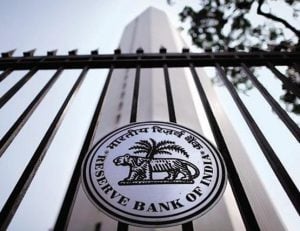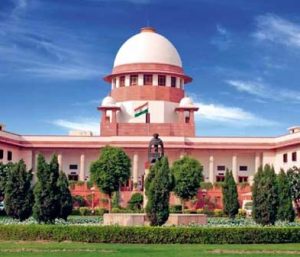Latest news about Bitcoin and all cryptocurrencies. Your daily crypto news habit.

Indian cryptocurrency exchanges have followed the Supreme Court’s suggestion for them to present their cases to the Reserve Bank of India. They have sent letters to the central bank, offering alternatives to the RBI’s banking ban.
Also read: Yahoo! Japan Confirms Entrance Into the Crypto Space
Supreme Court’s Suggestion
Cryptocurrency exchanges in India have reportedly sent their pleas to the Reserve Bank of India (RBI) as directed by the Supreme Court’s ruling last month.
The central bank mandated in April that all financial institutions under its control must stop servicing cryptocurrency exchanges and other crypto-related businesses within three months. Some crypto exchanges subsequently took the RBI to court; their writ petitions were passed to the Supreme Court.
The country’s top court decided to hear all the petitions against the RBI ban on July 20 and ordered concerned parties to engage with the central bank to consider their requests. The Supreme Court “allowed cryptocurrency exchanges, their shareholders, traders and other individuals to present their cases within two weeks to the RBI, which will look into the issue in accordance with the law,” as news.Bitcoin.com previously reported. Quartz elaborated:
The supreme court suggested that these exchanges can engage with the RBI. So, last week, a clutch of such firms sent out letters making their case against the banking regulator’s prohibitory order.
Crypto Firms’ Requests
 Various suggestions were presented to the RBI. According to the news outlet, some of “the bitcoin exchanges have requested the RBI to remove the blanket ban, saying the regulator should instead enforce it only on firms violating the norms.”
Various suggestions were presented to the RBI. According to the news outlet, some of “the bitcoin exchanges have requested the RBI to remove the blanket ban, saying the regulator should instead enforce it only on firms violating the norms.”
A petitioner explained to the publication, “we have also suggested measures that we are ready to take to improve the KYC-AML [Know Your Customer – Anti-Money Laundering] norms, such as including passport details as well. We are also ready to take any suggestion that the regulator has to offer that can address their concerns.”
Anirudh Rastogi, TRA Law’s managing partner who filed the supreme court petition representing four exchanges, told the news outlet:
A ban is counter-productive, therefore, we have suggested that there should be appropriate regulations that can address the government or the central bank’s concerns.
“Other firms have asked for an extension on the deadline,” the publication wrote, adding that it has reviewed an application submitted by Kali Digital Eco-systems Private Limited to the RBI. The document states that “considering the next date of the hearing in the supreme court is after July 06, 2018,” the firm requests the central bank “to extend the time of three months granted in the captioned circular to at least Aug. 31, 2018.”
Coping with RBI Ban
Five writ petitions have been filed, as news.Bitcoin.com previously reported. Last month, the Supreme Court mandated that no other courts shall accept any more crypto-related petitions and all existing ones were transferred to the Supreme Court.
 In anticipation of the RBI order taking effect, crypto exchanges in the country are increasingly moving away from fiat, creating crypto-to-crypto trading platforms. Unocoin launched a new trading platform with 15 cryptocurrencies last week. Zebpay and Koinex have both launched crypto-to-crypto exchanges.
In anticipation of the RBI order taking effect, crypto exchanges in the country are increasingly moving away from fiat, creating crypto-to-crypto trading platforms. Unocoin launched a new trading platform with 15 cryptocurrencies last week. Zebpay and Koinex have both launched crypto-to-crypto exchanges.
Currently, the Indian government is working on the regulatory framework for cryptocurrencies. It has set up a committee under Subhash Garg, the secretary of economic affairs in the finance ministry, to prepare a draft crypto law.
Do you think the RBI will reconsider the ban and accommodate the requests of crypto exchanges? Let us know in the comments section below.
Images courtesy of Shutterstock.
Need to calculate your bitcoin holdings? Check our tools section.
Disclaimer
The views and opinions expressed in this article are solely those of the authors and do not reflect the views of Bitcoin Insider. Every investment and trading move involves risk - this is especially true for cryptocurrencies given their volatility. We strongly advise our readers to conduct their own research when making a decision.
